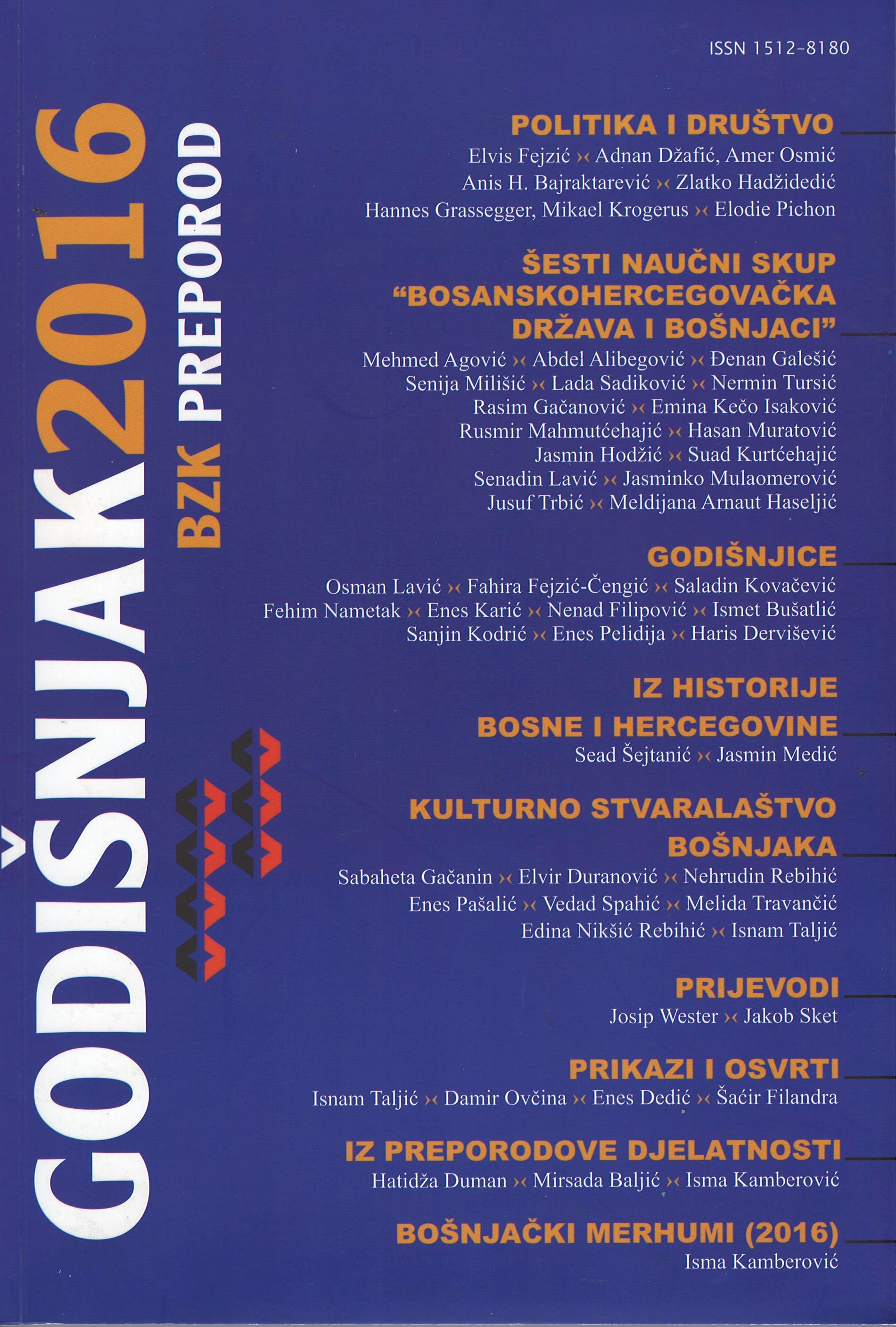Identitetske osnove bosanskohercegovačkog stanovništva i značaj identiteta kroz popise stanovništva u Bosni i Hercegovini
IDENTITY BASIS OF BOSNIAN-HERZEGOVINIAN POPULATION AND THE IMPORTANCE OF THE IDENTITY THROUGH THE CENSUS IN BOSNIA AND HERZEGOVINA
Author(s): Adnan Džafić, Amer OsmićSubject(s): Demography and human biology, Politics and Identity, Identity of Collectives
Published by: Bošnjačka zajednica kulture "Preporod"
Keywords: identity; Bosnia; census; Bosniaks; people; ethnic;
Summary/Abstract: The idea of identity in itself contains two characteristics: consistency and continuity in time, although the idea is used in that way in psychology and two of its characteristics are most commonly used in the analysis of identity research. If we start from this way of defining the Bosnian-Herzegovinian society from the earliest times until 1992, it had all characteristics of multilateral society, while from 1992 to the present all processes have been taking place inside and outside destructiveness of this society character. Members of all peoples who settled Bosnia from the earliest times were the existing cultures they encountered and ennobled by their own (cultures), which means that the Bosnian-Herzegovinian society is society of multilateral character without destroying the other and the different. All external attacks on the continuity and life of Bosnian-Herzegovinian society as well as the internal ones did not destroy the foundations of its multilateralism. That structural mosaic is made up of elements of Illyrian, Slavic, Celtic, Ottoman, Austro-Hungarian and all newer elements that have influenced and influence to the contemporary character of Bosnian-Herzegovinian society. The positive effects of inter-civilizational heritage as one of the most important segments of the Bosnian identity are significantly shaken in the early nineties and continually disturbed to the present. The census is the most comprehensive statistical research from which we can receive a large number of data about census units (residents, households, families, flats) as well as information with different content obtained through interconnection of data on individual census units (their characteristics and attributes of characteristics). The first available records on Bosnia and Herzegovina population and its characteristics dated from 1520. However, the scientific literature for methodologically correct census takes census carried out by the Austro-Hungarian rule in Bosnia starting in 1879. During the period of 137 years, Bosnia and Herzegovina had 13 censuses (1879, 1885, 1895, 1910, 1921, 1931, 1948, 1953, 1961, 1971, 1981, 1991, and 2013) which provided indicators on population and households which were available. This paper will analyze the advantages which have each state that continuously updated its database on the population through the prism of identity, and for centuries manipulation of citizens through, typical for Bosnia, imposed three key elements in the census: ethnic group, religion and language, because in ethnic and national formation of the South-Slavic peoples in the beginning were the most important two factors: the language and the state, mostly on the basis of these two factors in Bosnia in the beginning of ethnic development intertwined Slavic (Illyrian) complexes, due to similarity of Slavic languages and Bosniak complexes, as a consequence of survival separate Bosnian state.
Journal: Godišnjak Bošnjačke zajednice kulture »Preporod«
- Issue Year: 2016
- Issue No: 1
- Page Range: 33-45
- Page Count: 13
- Language: Bosnian

